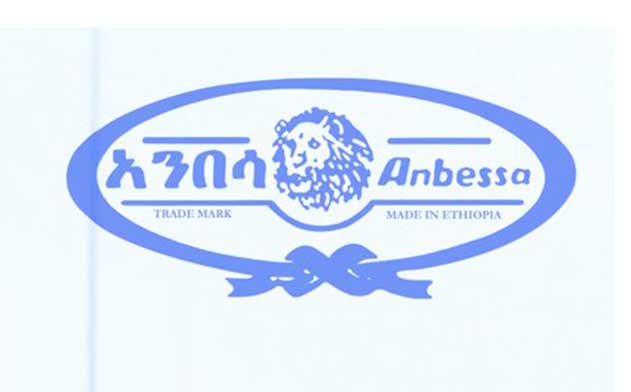
Radar | Jun 12,2021
Local edible oil manufacturers are contending with shrinking market shares for the past six months, as imported edible oil products flood the market, offering lower prices and garnering higher consumer preference.
Ethiopian Edible Oil Manufacturing Industries Association, representing 232 members, has raised concerns about the factory gate prices of their products, which are notably higher than those of the imported alternatives. Board Chairman Mohammed Yusuf has disclosed plans to lobby for an increase in duties and taxes on imported alternatives as part of a strategy to boost the market share of local producers.
"Imported oil should be subjected to at least 20pc duties," he told Fortune.
He said local producers could meet half of the country's demand, even dealing with forex shortages. Mohammed contends that the current equal five percent duty on both crude oils used by manufacturers and finished edible oil from abroad unfairly favours importers.
Members plan to present their case to the Ministry of Finance in the coming weeks. They claim half of the members are operating at significantly less than 50pc of their capacity, facing challenges such as political instability, raw material shortages, and foreign currency constraints.
Industry insiders attribute the surge in imported oil to the Franco Valuta scheme, where importers source foreign currency from international accounts. Fully permitted in the past two years to combat inflation, the scheme allows importers with a minimum of 250,000 dollars in offshore accounts to import basic consumption goods by using their currency resources outside Ethiopia.
One government bid last year indicated demand for 49 million litres of edible oil through imports meant to be distributed by state-owned enterprises Ethiopian Trading Businesses Corporation and Ethiopian Industrial Inputs Development Enterprise. Another bid for the latter for the procurement of 20 million litres failed to attract any interested takers.
Mulay Woldu, tax policy director at the Ministry of Finance, suggests that the Ministry of Industry should conduct a study to address local manufacturers' woes.
The Ministry of Trade & Regional Integration has recently announced the purchase of 16.3 million litres of edible oil imported through the Franco Valuta scheme for distribution and state-owned enterprises, aiming to stabilise the market.
Meskerem Bahiru, head of the Consumer Protection Desk at the Ministry, said stabilising the market during the holiday season was one of the primary reasons for the large purchase. She said the local manufacturers cannot meet a tenth of the local demand despite their constant complaints over the allowance of Franco Valuta importers.
"The amount is decreasing," she told Fortune.
Top six edible manufacturers in Ethiopia were allowed to access 50 million dollars to procure inputs for their factories despite the figure being half the amount initially allocated.
PhiBela Industry Complex, a subsidiary of Belayneh Kinde Business Group (BKBG) in Amhara Regional State, has been operating at half of its capacity despite the capacity to process 450,000tns of oil seeds. Operating with a budget of 4.5 billion Br, the Manager Solomon Legesse cites the lack of local demand as the primary reason for underutilisation.
"It's the only reason we have stock," he told Fortune.
Solomon plans to source crude oil locally once a nearby plant under construction by BKBG is completed in the coming years, to match the price of imported alternatives at 850 Br.
"They [importers] have none of the operational expenses we do," he said.
Despite the challenges, the major shareholder of the edible oil processing company, Alemayehu Lema, remains optimistic about the industry. Their plant, operational for two years in Tatek Industrial Park, has been running at half of its 3,000ltr daily capacity, intermittently pausing and starting production due to conflicts and the influx of imported oil. He said the company is only managing to cover its expenses as it manages a tightrope on the precipice of a permanent shutdown.
"There are no sales up north," Alemayehu said.
Economists such as Arega Shumete (PhD), view the proliferation of imports through Franco Valuta as a temporary solution to combat inflation. They stress the need for strong market linkages through initiatives like contract farming, expansion of commercial farms, and improved agricultural methodologies to create sustainable connections between local inputs and manufacturers.
"Foreign supply of oil is a temporary remedy," he said.
He points to significant potential in contract farming, expansion of commercial farms and improved agricultural methodologies to create linkages between local sources of inputs and manufacturers.
"It'll be a solution to both manufacturers and the market demand," he told Fortune.
PUBLISHED ON
Jan 07,2024 [ VOL
24 , NO
1236]

Radar | Jun 12,2021

Agenda | Jan 07,2023

Fortune News | Jul 02,2022

Editorial | May 21,2022

Radar | Oct 16,2021

Fortune News | Aug 17,2019

Fortune News | Sep 30,2021

Fortune News | Dec 05,2020

Fortune News | May 21,2022

News Analysis | Sep 26,2021

Dec 22 , 2024 . By TIZITA SHEWAFERAW
Charged with transforming colossal state-owned enterprises into modern and competitiv...

Aug 18 , 2024 . By AKSAH ITALO
Although predictable Yonas Zerihun's job in the ride-hailing service is not immune to...

Jul 28 , 2024 . By TIZITA SHEWAFERAW
Unhabitual, perhaps too many, Samuel Gebreyohannes, 38, used to occasionally enjoy a couple of beers at breakfast. However, he recently swit...

Jul 13 , 2024 . By AKSAH ITALO
Investors who rely on tractors, trucks, and field vehicles for commuting, transporting commodities, and f...

Oct 18 , 2025
The political establishment, notably the ruling party and its top brass, has become p...

Oct 11 , 2025
Ladislas Farago, a roving Associated Press (AP) correspondent, arrived in Ethiopia in...

Oct 4 , 2025
Eyob Tekalegn (PhD) had been in the Governor's chair for only weeks when, on Septembe...

Sep 27 , 2025
Four years into an experiment with “shock therapy” in education, the national moo...